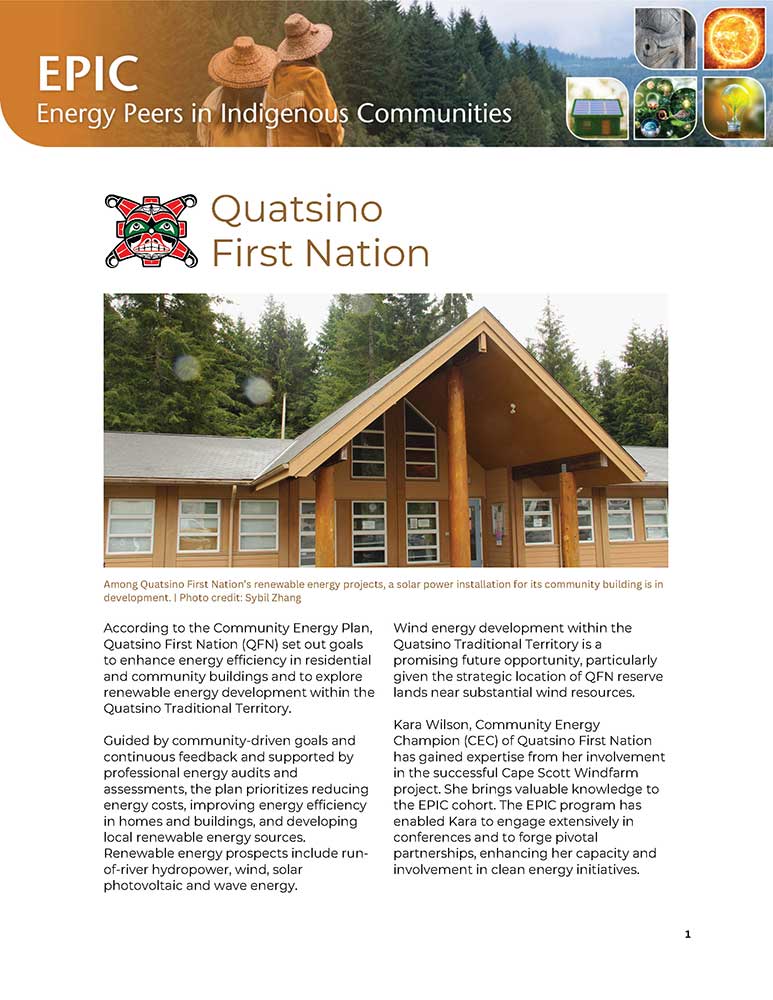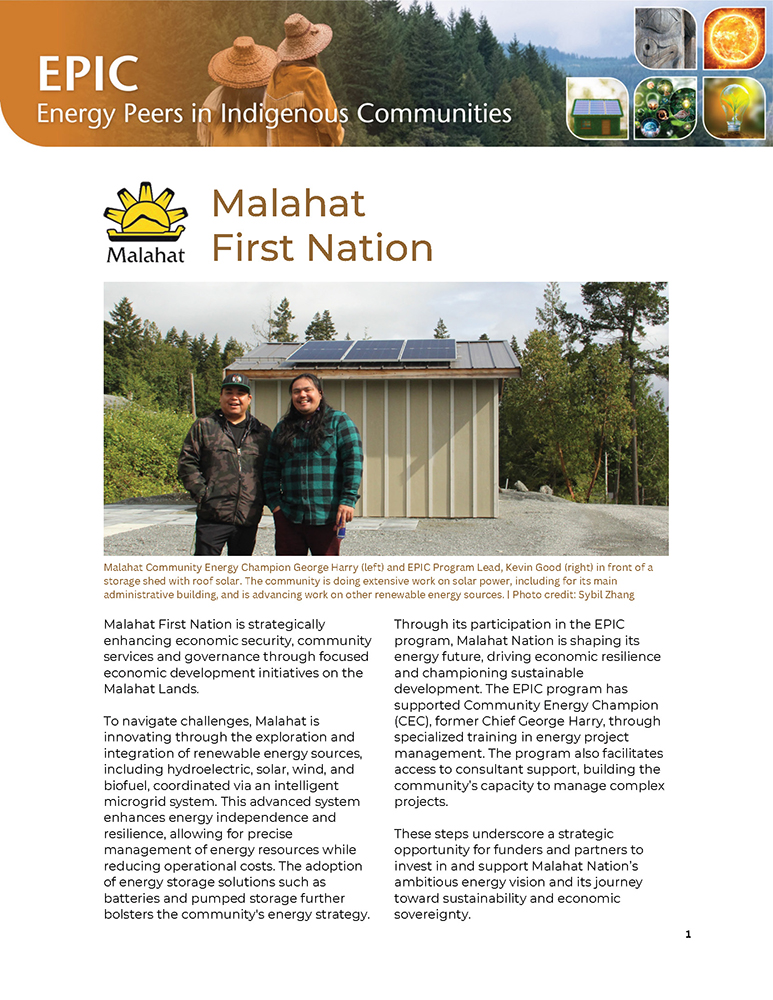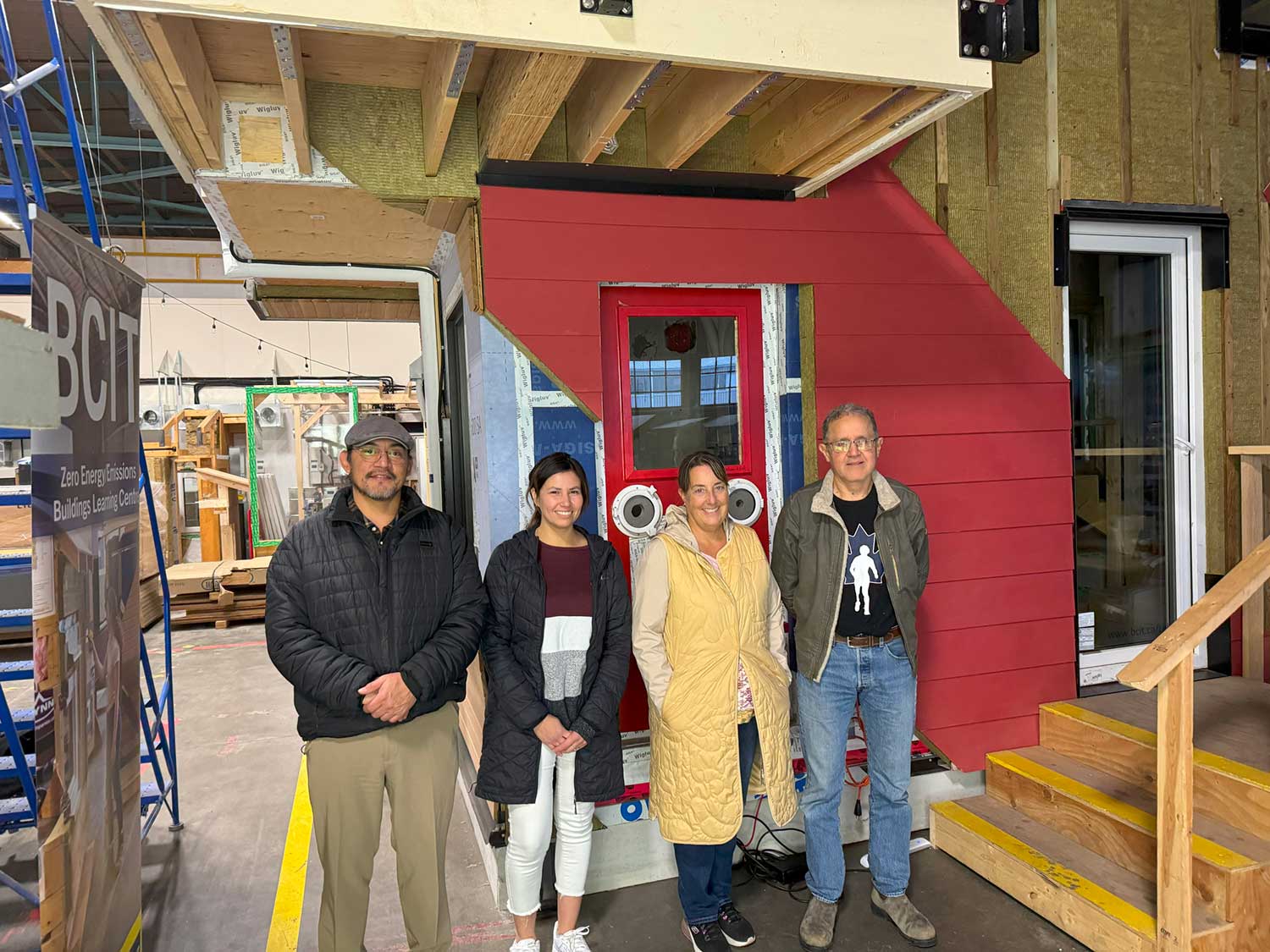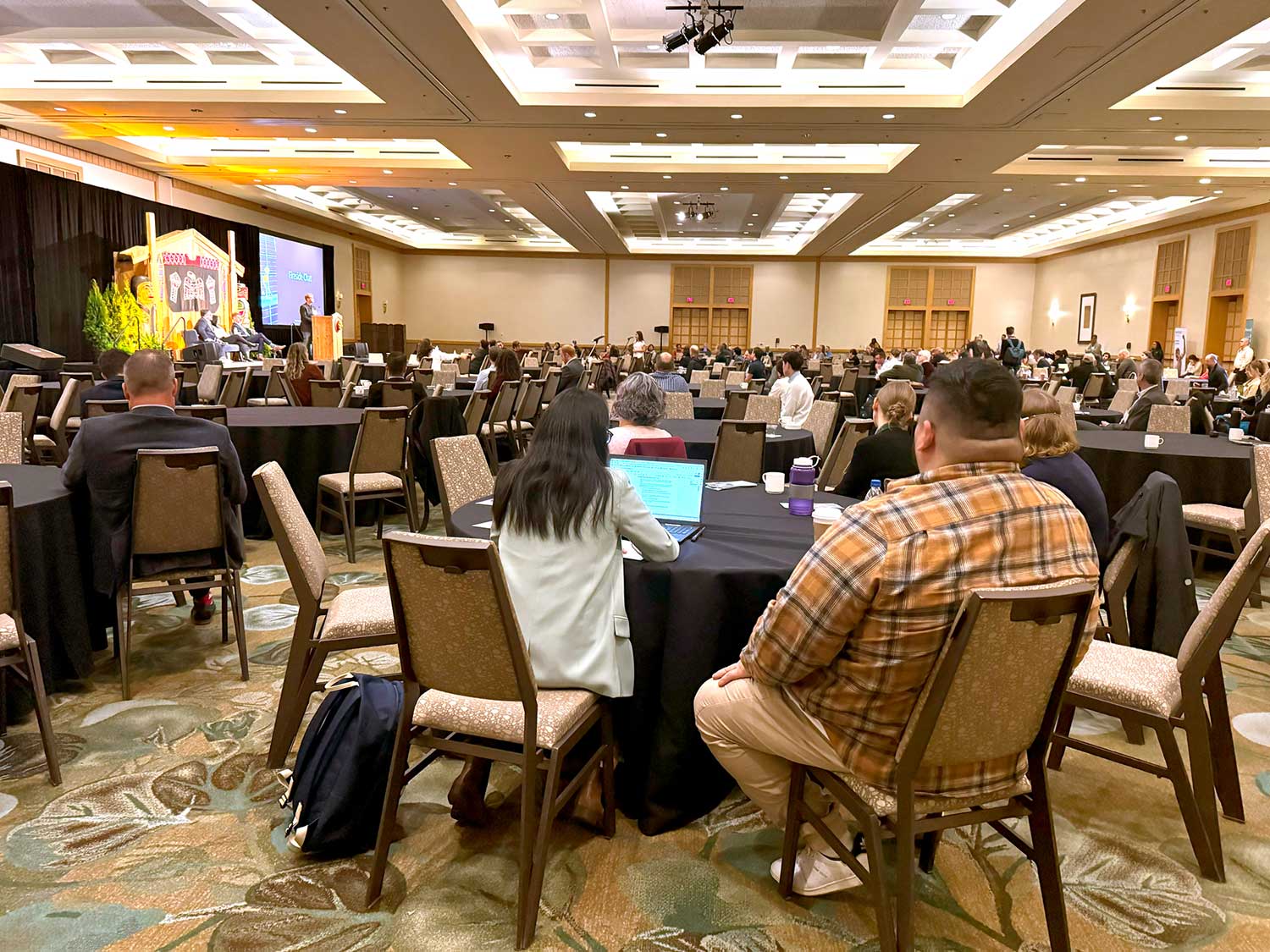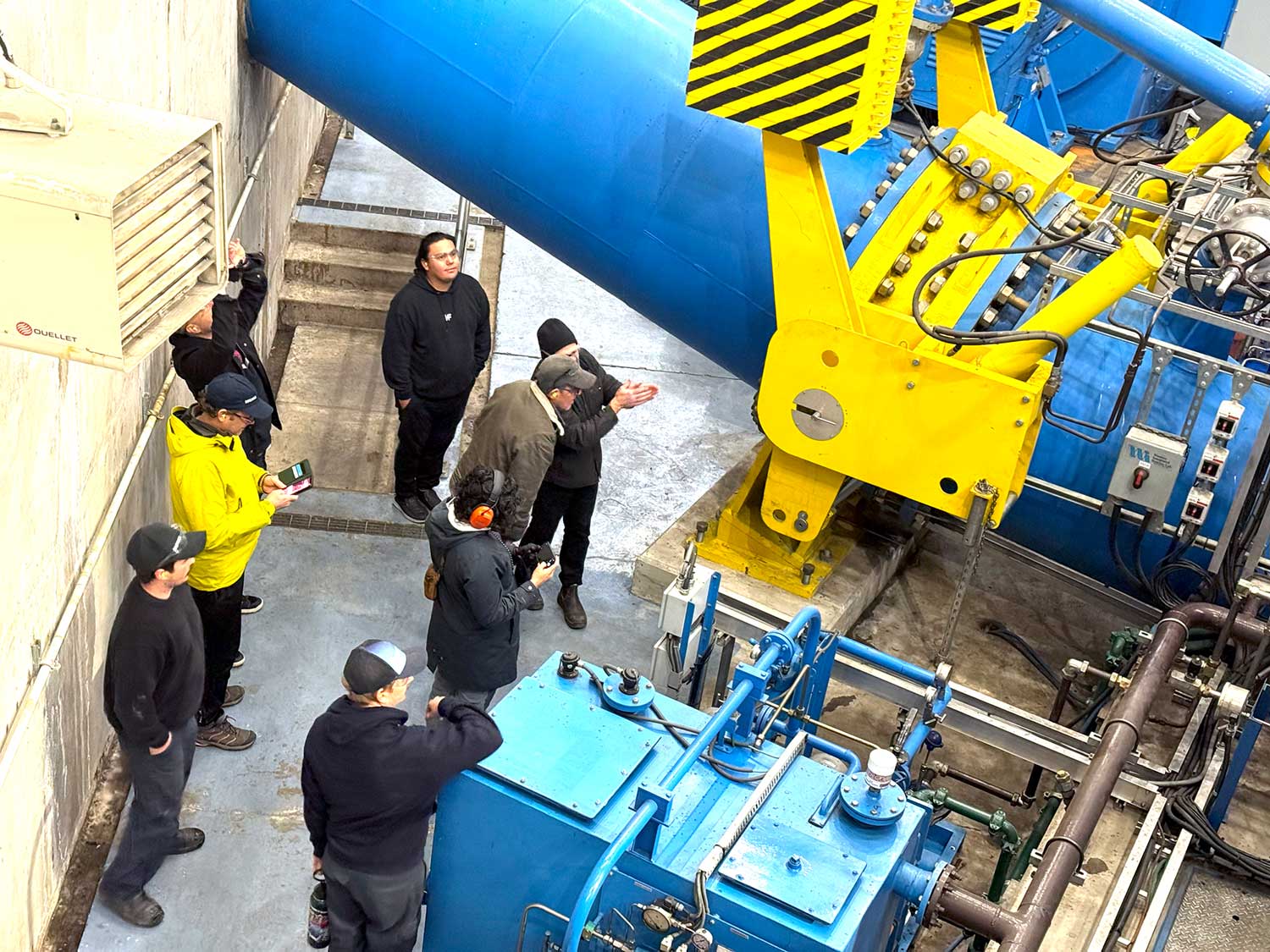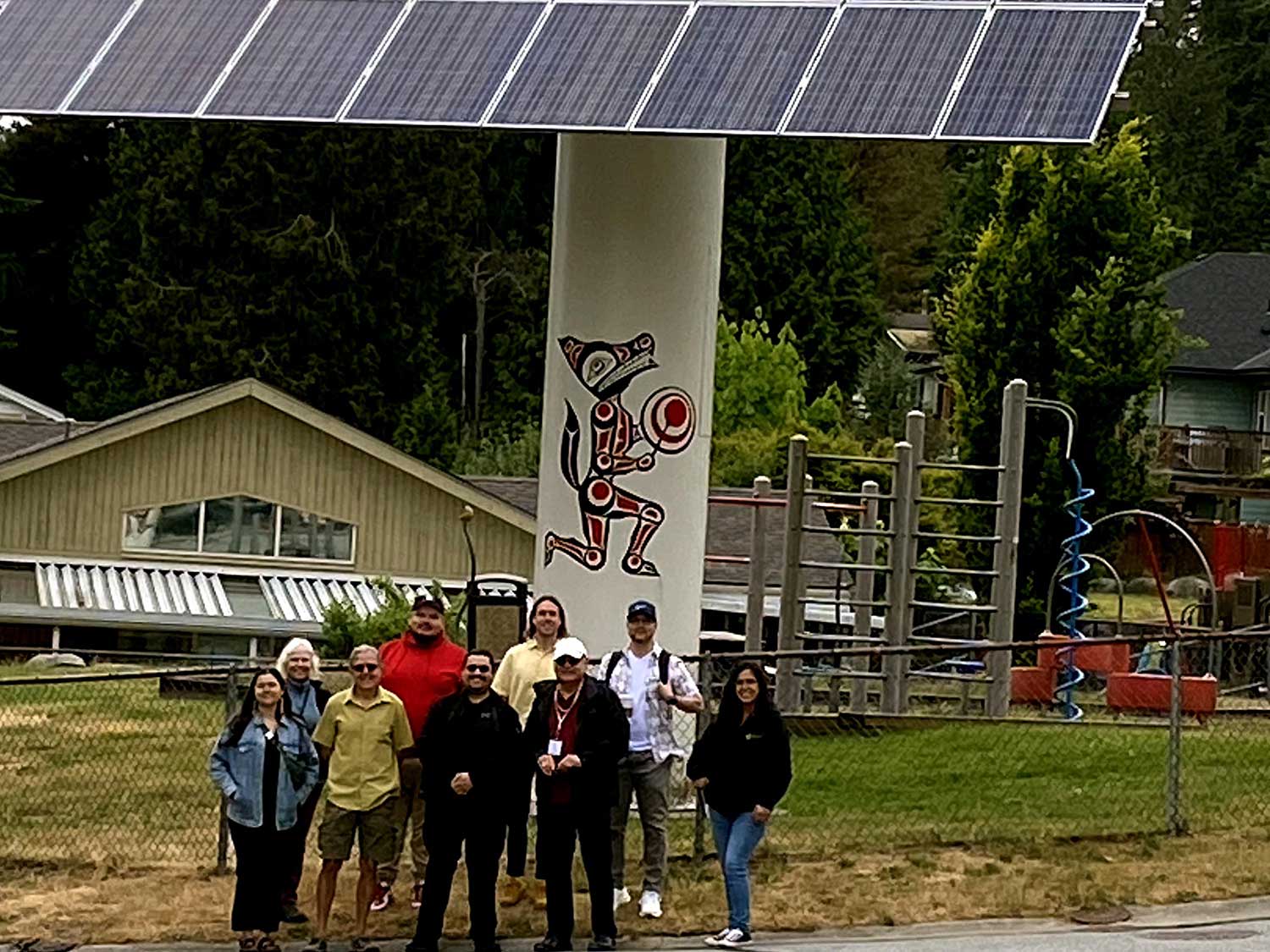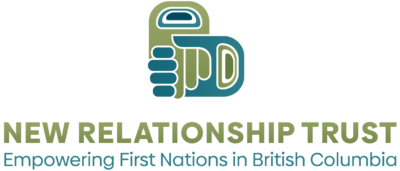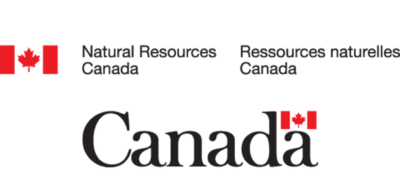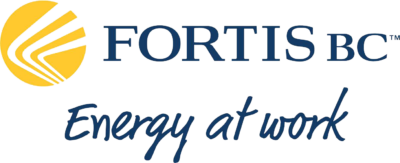Energy Peers in Indigenous Communities (EPIC) Network
The EPIC Network — with support from the Fraser Basin Council — is aimed at building capacity, knowledge and skills on renewable energy in Indigenous communities in British Columbia through the work of Community Energy Champions.
EPIC’s Clean Energy Champions and their Communities
Community Energy Champions are helping to advance the clean energy work of Malahat First Nation, Penticton Indian Band, Quatsino First Nation, Sik-D-dakh First Nation, Skwah First Nation, Snuneymuxw First Nation, Tseshaht First Nation and West Moberly First Nation.
Meet two of the EPIC Network’s Community Energy Champions and learn about work underway at Malahat and Quatsino First Nations!
Quatsino First Nation | Community Energy Champion Kara Wilson
Quatsino First Nation | Community Energy Story
Quatsino First Nation has a community energy plan that places priority on reducing energy costs, improving energy efficiency in homes and buildings, and developing local renewable energy sources. Renewable energy prospects include run-of-river hydropower, wind, solar photovoltaic and wave energy. Read more.
Malahat First Nation | Community Energy Champion George Harry
Malahat First Nation | Community Energy Story
Malahat First Nation is innovating through the exploration and integration of renewable energy sources, such as hydroelectric, solar, wind, and biofuel, and coordination via an intelligent microgrid system. The aim is energy independence and resilience by allowing for precise management of energy resources and reduction of operational costs. The Nation’s plans include a battery energy storage manufacturing facility for commercial and residential applications. Read more.
About EPIC
The Energy Peers in Indigenous Communities (EPIC) Network is a program to build capacity, knowledge and skills related to renewable energy in Indigenous communities in British Columbia.
The program provides capacity-building funds to Indigenous communities to advance their energy goals related to community renewable energy. The intention is to build knowledge and skills related to renewable energy projects in Indigenous on–grid communities in BC.
EPIC supports a cohort of participants (called Community Energy Champions) through a peer-to-peer cohort and peer mentorship approach to building and sharing knowledge, networking and engagement, skills development and training on renewable energy.
More on the Program
Contacts
For more information, contact program co-leads for the EPIC Network:
Kevin Good
Program Lead, EPIC Network
Sybil Zhang
Program Lead, EPIC Network
Acknowledgements
Our thanks the New Relationship Trust, the Province of British Columbia’s CleanBC program, BC Hydro and FortisBC for their generous support and guidance for the program.
We acknowledge that the work of the EPIC program has also benefited from leadership by the Coastal First Nations – Great Bear Initiative, which created the Indigenous Climate Action Network, a program that supports Indigenous leadership in climate action for remote communities across the province.
Federal funding for this project is provided by Natural Resources Canada’s Smart Renewables and Electrification Pathways Program, a $1.56-billion program that provides support for smart renewable energy and electrical grid modernization projects, including projects that support capacity building. See also Natural Resource Canada’s media release on funding for the EPIC program.
Top banner image: EEMP program participants at a three-day workshop at BCIT in October 2023 following a series of virtual training sessions. Photo: Darell Gaddie, FBC.



